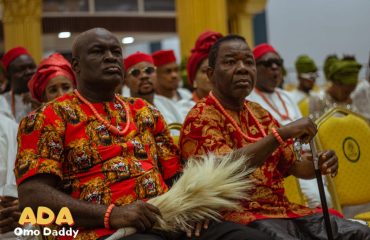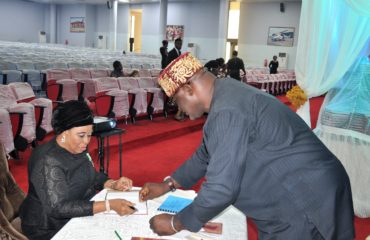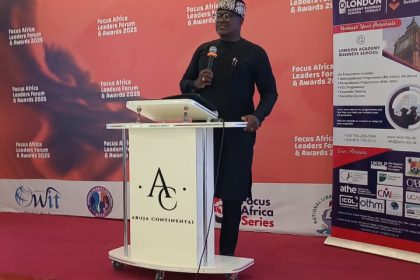
AFRICA: THE UNSUNG MAIDEN
In the realm of global scholarship, chronicles abound, detailing vibrant
aesthetics of Africa’s civilization through millennials and epochs,
preceding its circumstantial contact with “invading civilizations”.
The African world brimmed with finest textures of Art, Natural Sciences,
Philosophy, Medicine, Signs and Graphics, among several other
distinctions. Ancient empires of Africa adorned deserved laurels of
distributive wealth and prosperity, earned from “nature’s giftings”. Such
empires like Songhai, Borno, Mali, Benin, among others, defined
civilization and were held in awe, across distant trans-Atlantic realms
and jurisdictions.
Little wonder, social anthropologists, with rigor, searched through
volumes of scrolls, for such words as poverty, hunger, starvation and
material absences in the “African world”, but found none.
Alas, this delectable maiden, highly sought after and roundly
approbated, soon, began to be undressed. Instalmentally, sparks of her
inimitability, lush and gait, gave way for ash.
So, what happened?
POST-MODERNISM: AFRICA’S ACHILLES HEEL?
Scholars have argued in different directions and distilled divergent
thoughts regarding “the fall of Africa”. They all make potent points.
However, I am persuaded that the misreading of the tone and dialectic
of the post-modernist age, exposed the esteemed African worldview to
the vagaries and vulnerabilities of the “western dynamic”.
Soon, the booming canons, and shimmering allure of foreign
appurtenances, trounced hitherto revered sensibilities and ethos of the
African essence. The climax of this invasion came with the balkanization
of Africa (1880 – 1914) with the Berlin conference, specifically of 1884 –
1885, marking a key turning point.
AFRICA TODAY: THE ENEMY WITHIN
As a rule, I have stridently refrained from the attitude of “victimhood” as
often displayed by compatriots, around Africa, who latch on the
partitioning and colonization of Africa as “raison d’etre” for Africa’s
underdevelopment. Though, to some extent true, a retrospective study
of governance and political leadership across African states and
sovereignties, since the “Bazaar of Independence” and self-rule (1950s –
60s) suggest, preponderantly, the treachery of home-grown enemies.
Upon emerging from western colonization, the expectation, sensibly,
was that, African leaders of the period, were going to “re-own” and re
craft the eco-system of African development. Except for a few, many
leaders became even worse than the colonial overlords.
Consequently, Africa, today, is weak-kneed by overarching debt profile.
The colossal loss of our continental patrimony is further exacerbated by
mindless collusion with imperialist elements, whose attraction to Africa is
to resume their rapacious post-modernist onslaught. Corruption, Sleaze,
Nepotism, Interminable Appetite for obscene lifestyle, Class Addiction
and subservience to foreign dictates have conspired in the suppression
of African Growth, Prosperity and Development.
POWER AND INFLUENCE CONTESTATIONS: SEEING THROUGH THE
MULTI-POLAR CONSTRUCT
Systemically, growing trends in global geo-politics, suggest that the
world is at a turning point. Historically, the interplay of unapologetic
economic interests have thrown up diplomatic tinkerings and crystallized
in the emergence of, first, the dominance of America as a global
“numero uno”. The world cringed and submitted to its “solo” (Uni-Polar)
influence. Soon, post-second world war eventualities threw up the then
USSR-now-Russia as a sparring force with America, in a i-Polar
configuration.
Extant realities project China, North Korea, India and, perhaps, to a
lesser extent, Iran, as geo-political forces in the global space. With these
dominant forces, a Multi-Polar construct, fully insulating Africa,
determines the world’s socio-economic order.
When we throw the rampaging whirlwind of Artificial Intelligence (AI)
into the mix we are presented with a continent that is starkly ill
prepared for the fourth industrial Revolution. It’s on record that, while
South Korea has committed one billion dollars to the Development of
non-human technological eco-systems, China has deployed over 150
Billion Dollars to the erection of a wholesome, “bottom up AI industry.
The swan song across Europe and North America is the emergence of AI
as the inimitable technological game-changer in the current global
industrial order.
It repels me to remark that Africa is still contending with banalities, even
as it remains acutely uncompetitive, and, seemingly, unprepared.
I shudder to imagine what the world would become, in a few decades,
and what ramifications would stare Africa in the face.
On the surface, these dominant forces in Europe, America and Asia,
appear to be charging at each other’s jugular. But, in reality, there
exists, within them, a back-channel global wealth acquisition “fraternity”,
whose unwritten, benign code remains “each one’s interest to each one
protect”.
I say so, because, the new diplomatic wave of Protectionism and
Nationalism, across North America and Europe, has winked at the
hitherto, liberal migration policy, of a few decades ago, by which a large
swathe of “immigrant-demographic”, gained access to Europe and
America.
Today, the popular mantra is “America for Americans”, “Europe for
Europeans” Sadly, Africa is not factored in their foreign policy equation.
African citizens account for the largest causalities arising from shut
borders. Statistics emanating from the International Organization for
Migration (IOM) posts a sobering upsurge in the number of persons
(sometimes, whole families) embarking on Irregular Migration. Whilst
many drown in both the Atlantic Ocean and European Channels, those
who manage to make it alive, get shut out, and refused access, at their
end-destinations. Not a few compatriots from Eritrea, Sudan, Libya,
Nigeria, Coted’voire Senegal, Ghana, and elsewhere, are either dead or
unaccounted for.
To be clear, I do not, by any means, advocate for the continued fatal
recourse to Irregular Migration. My point speaks to the stark reality of
today’s world where so-called contending power peddlers are “at one” in
the rejection of liberal border policies of a few decades ago, as they also
do, with a handful of other subjugative policies against Africa
Clearly, the human person is migratory by nature. The quest to move
from point to point – for diverse reasons – wars, civil hostilities, famine,
natural disasters, quest for better life, political suppression, gagging of
fundamental human rights, socio-cultural integration, etc – constitute
core considerations for human migratory predilection.
ROADMAP TO AFRICA’S ECONOMIC RENNAISSANCE
IN TODAY’S GLOBAL REALITY
Whilst I confess violating my opening statement presuming your
familiarity with our continental endowments, I am unable to resist the
tempting pull to opine that, almost all physically natural and rare earth
endowments, critical to foreign technological ingenuity, are sourced from
Africa. Western insatiable appetite for Nuclear, Military, Artificial
Intelligence (AI) and sundry extraordinary inventive feats depend,
largely, on Platinum Group Metals (PGM), Bauxite, Iron-Ore, Nuclear
Dust, Uranium, Oil and Gas Deposits, on and under the African soil.
Being so, and, against current geo-regional unrests in Russia, Ukraine,
Israel, Gaza, Lebanon, Syria, Iran, etc, it may be that Africa is sitting,
strategically, on the threshold of enduring economic renaissance. All it
needs is ethical, continental fusion, mutuality and inclusion. According to
a Ghanaian Proverb, “when virtue founds a town, the town thrives and
abides”. To be sure, the emergence of Africa as a global economic
super-power, in these times, will, resolutely, be predicated on the
sterling spirit of continental interconnectedness. Again, as told by my
forefathers, “a person is not a palm tree that he should be self
complete. The future of Africa’s economic emancipation and prosperity is
entirely up to Africans as a collective.
The way out for Africa’s leaderships is to commit to a systemic re
alignment of developmental spreadsheets, leveraging on strategic areas
of socio-economic strength, while priotizing, domestic, nationalistic,
approaches to governance. Furthermore, the elimination of poverty and
hunger, drastic reduction in high mortality rate through improved
Medicare, equitable distribution of opportunities and support for the
ventilation of mental creative, technological and sundry content-skills,
through qualitative education, should be pursued as frontline policies.
In summary, African leaders should drive assiduously in the direction of
the attainment of the Sustainable Development Goals (SDG) agenda.
Additionally, there is a compelling imperative for a convergence of
diverse viewpoints at continental, regional and sub-regional levels. The
issue within the ECOWAS sub-regional bloc, as verging on the break
away body of Sahel states, should not preclude a unanimity of purpose,
in our continental quest for socio-economic prominence on the global
epicenter. According to Artika Tyner (author and 2022 Bush Fellow
recipient), diversity is critical to the coalescing of minds to chisel out
solutions to business, economic, and social challenges in the 21st
Century and beyond, for Africa.
Even more, is a call to leadership at all levels – the type of leadership
which rests, squarely, on delayed gratification and is evidenced in the
ability to enlist shared visions, experiences and cultural mutualities.
If over 40% of the world’s gold deposits; 90% of the world’s Chromium
and Platinum Deposits; over 65% of the world’s Arable land and 10% of
the Planet’s Internal Renewable Fresh Water Source, are from Africa,
then, leadership- and only leadership – will be the needed elixir to drive
our continental
aspiration. With sound leadership and intentional
elimination of all forms of sleaze and corruption at all levels of
governance across African states and sovereignties, bilateral and
multilateral socioeconomic interfaces would begin to produce meaningful
outcomes.
I ask. How much contribution has AFCFTA (African Continental Free
Trade Area) made to our Continental GDP? Yet, it was, essentially,
expected to boost inter-African trade and economic integration, by
eliminating tariffs and non-tariff barriers, thereby creating a larger and
more integrated market and fostering economic growth across the
continent.
Founded in 2018 (in Kigali, Rwanda) and became operational in 2019,
ACFTA was designed to leverage on the free flow of goods and services
in order to boost the trading position of Africa in the global market.
Like ACFTA, the New Partnership for Africa’s Development (NEPAD),
founded and ratified by member-states of the African Union (AU) in
2001, was designed to provide Africa with a unique opportunity to
thrive, economically, socially and culturally, by taking full control of its
development agenda, whilst sustaining a peer-relationship with the
international community.
The foregoing institutions were products of well thought-out templates
for continental development.
However, it will appear that, they have performed below par, owing,
majorly, to the absence of patriotic leadership and “Pan-African
Protectionism”.
Curiously, the complexities occasioned by the interplay of multi-polar
contestations have, ineluctably, birthed yet another “counter force”-The
transcontinental accord, known as BRICS. Being an acronym for the
informal grouping of emerging economies- Brazil, Russia, India, China
and South Africa, BRICS has, in recent times transformed into a formal
intergovernmental cooperation poised to promote economic promotion.
A few more countries, Nigeria inclusive, being the 9th partner have
signed up as members. The idea of BRICS is to create a counter balance
to the dominance of the west, over multilateral institutions, such as the
IMF, world Bank etc.
Though a welcome idea, I worry that, a few key partners in BRICS are
knee-deep in pre-existing power blocs, with huge economic, social and
diplomatic investments, which may be extremely difficult to unbundle for
the sake of the new transcontinental partnership.
Regardless, I foresee that BRICS, as a loose confederacy might be a
long-overdue global diplomatic “game changer” through which Africa
may “slack –off” a space for global economic “bragging rights”.
CONCLUSION
Distinguished guests, I was admonished by my father, of blessed
memory, that whatever time, in the day, a man woke up, was his
morning.
It is, yet, morning for Africa. It will be an uncommon act of wisdom for
our leaders to jettison needless domestic, clannish and self-seeking
mindsets and embrace the future that beckons.
As I observe the “swing and sway” of multi-polar contestations in
today’s world, I dare say that, Africa is set to emerge as the “beautiful
bride”; the “go-to” destination hub for global super-powers, as they slug
out for spaces and “bragging rights” in the current power dynamic and
contestation.
Africa’s Renaissance beckons.
I thank you for your kind attention.
Charles Okafor
Abuja, Nigeria.
April 10, 2025.
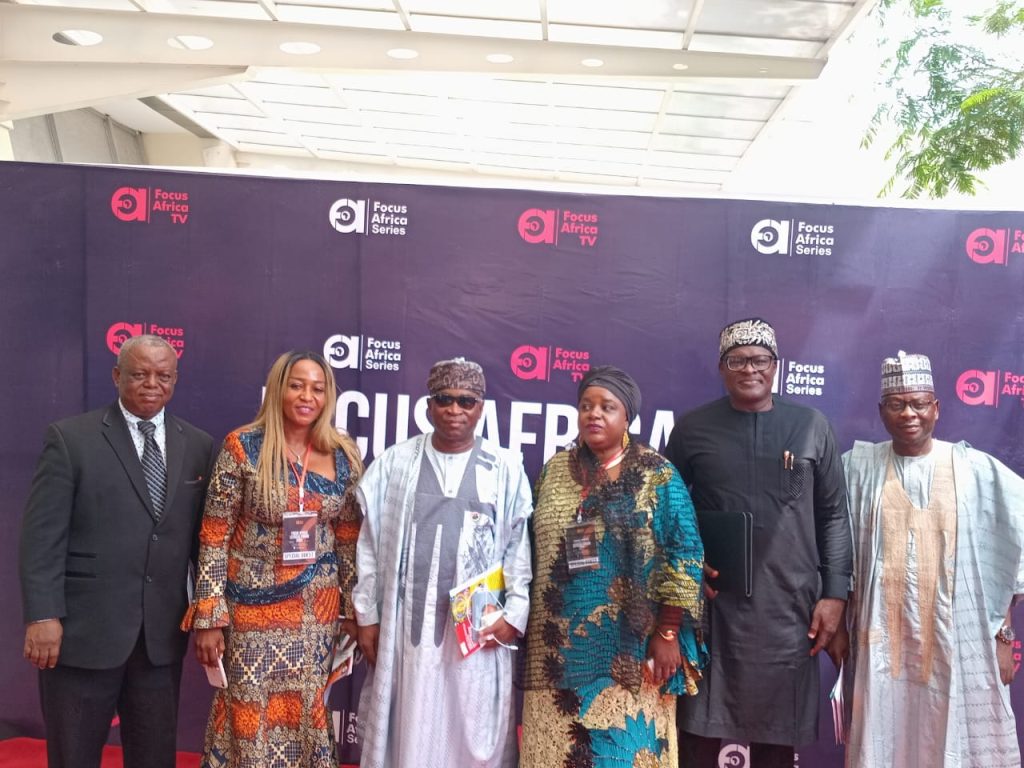
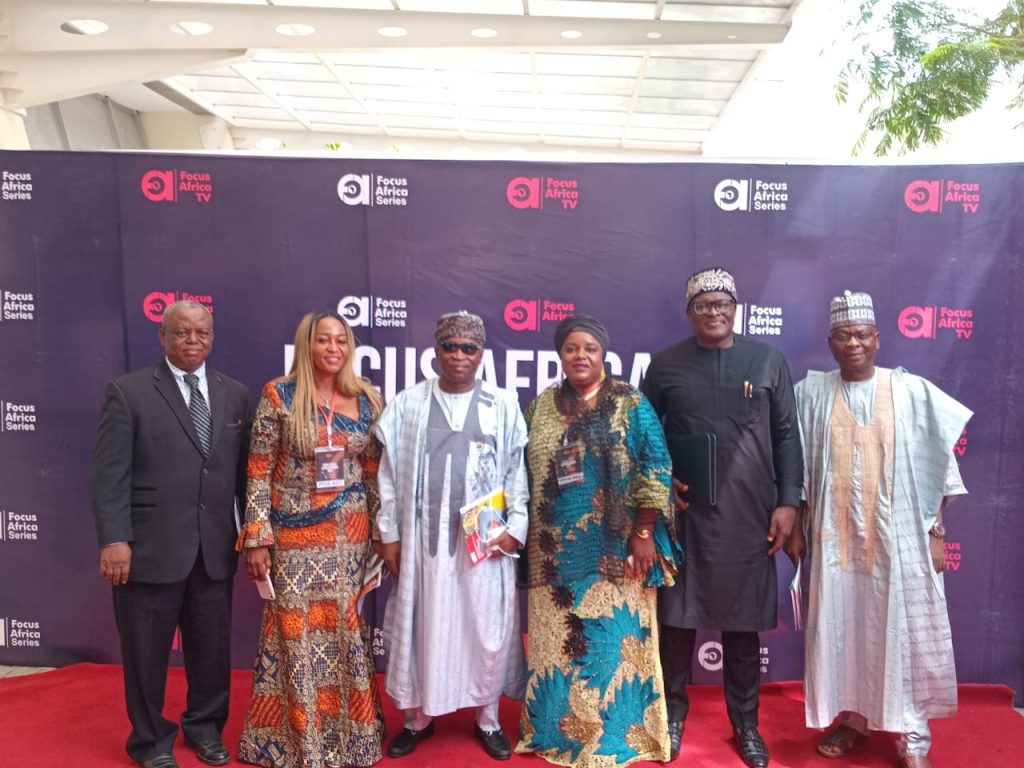
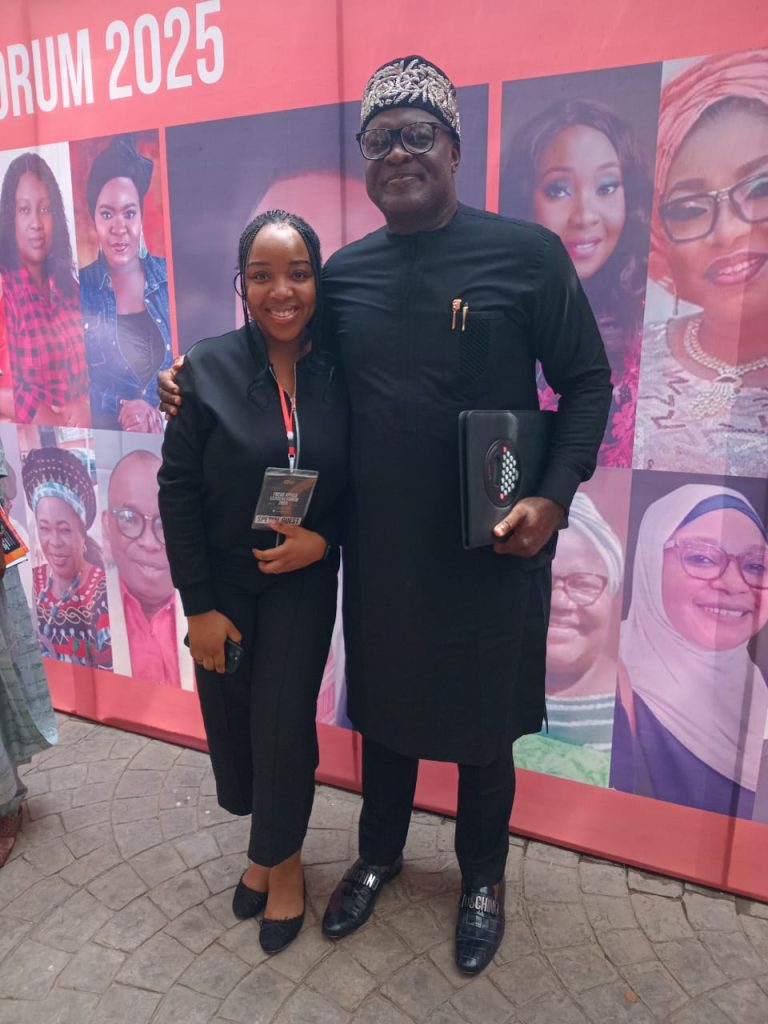
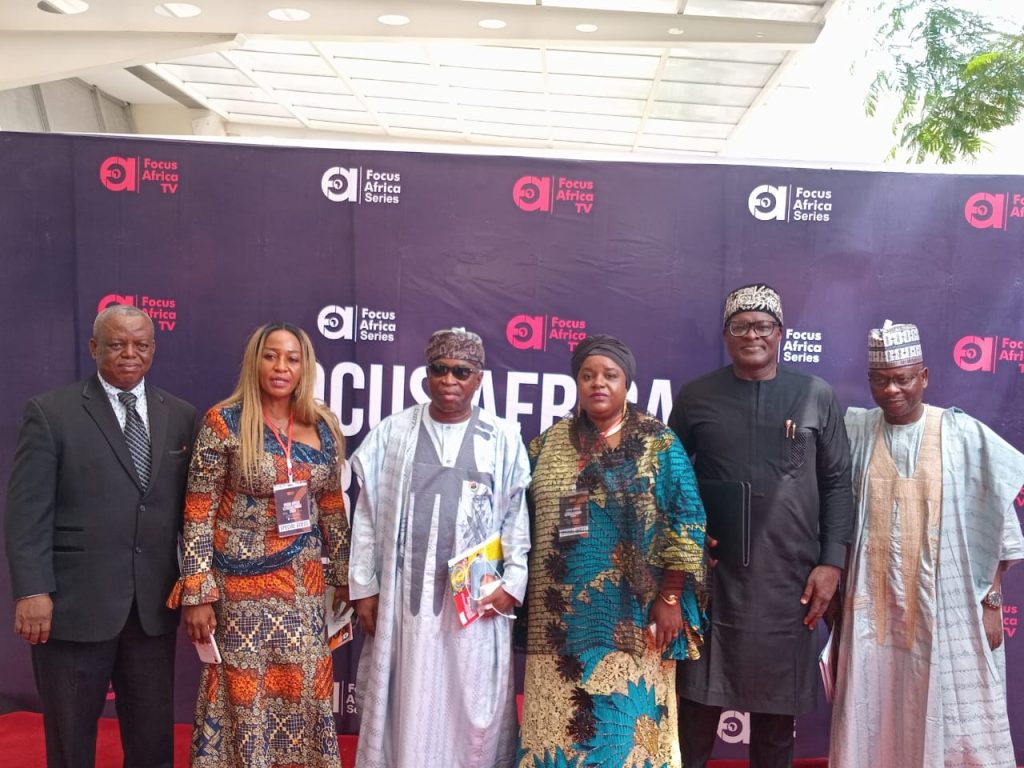
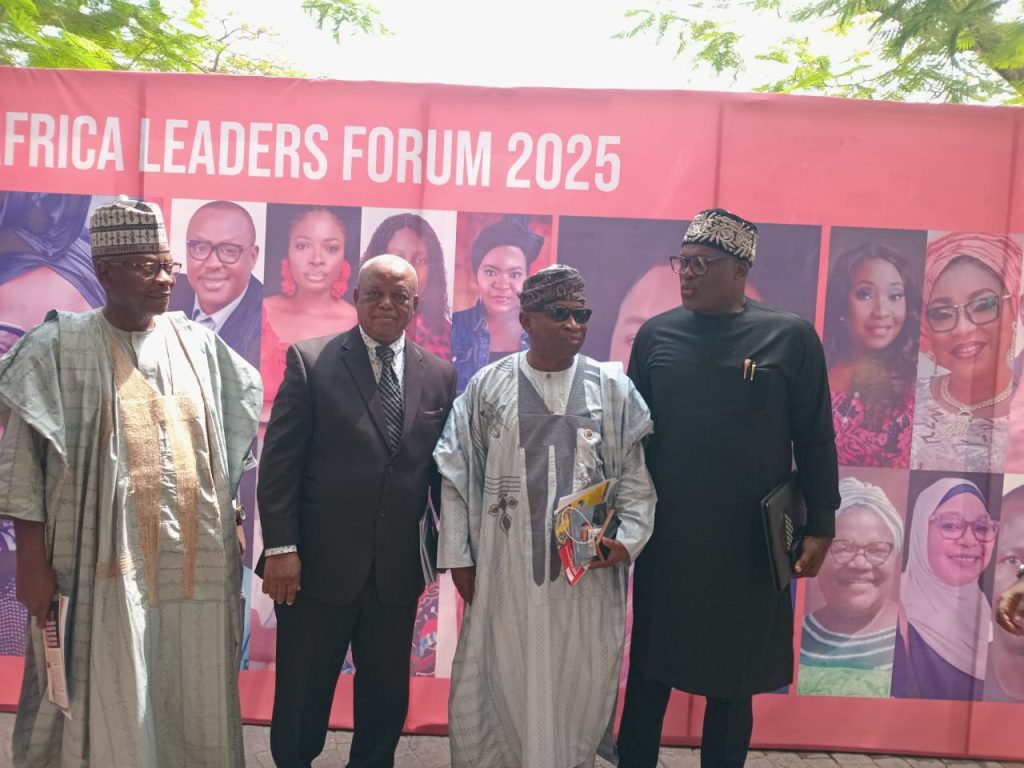
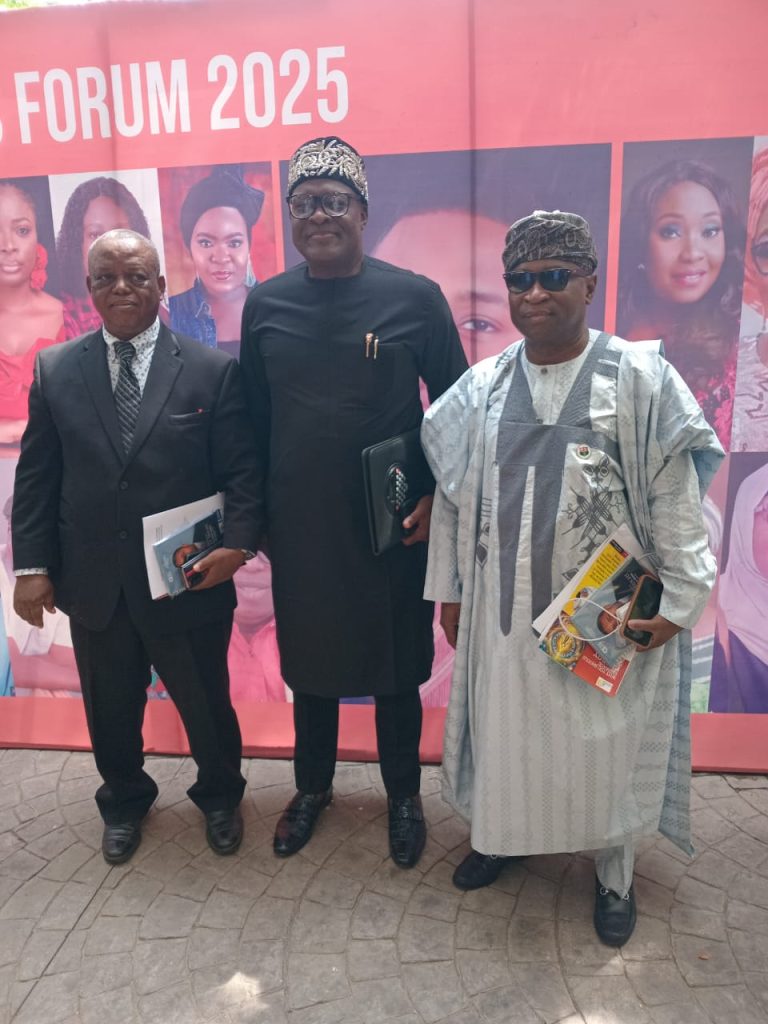
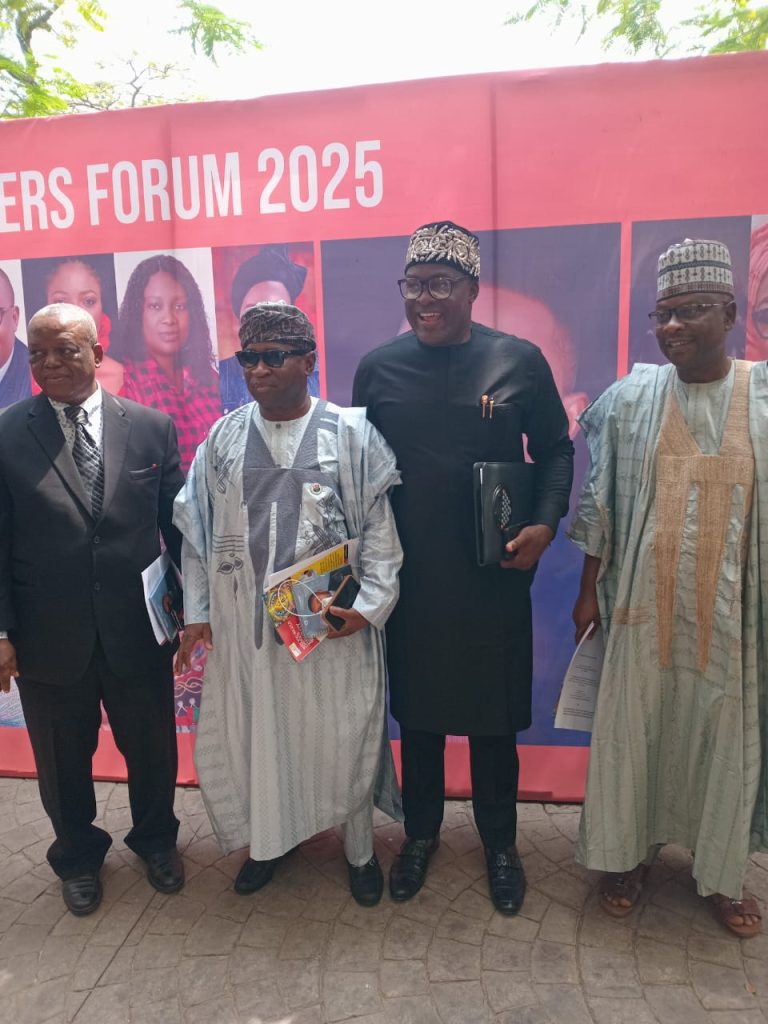
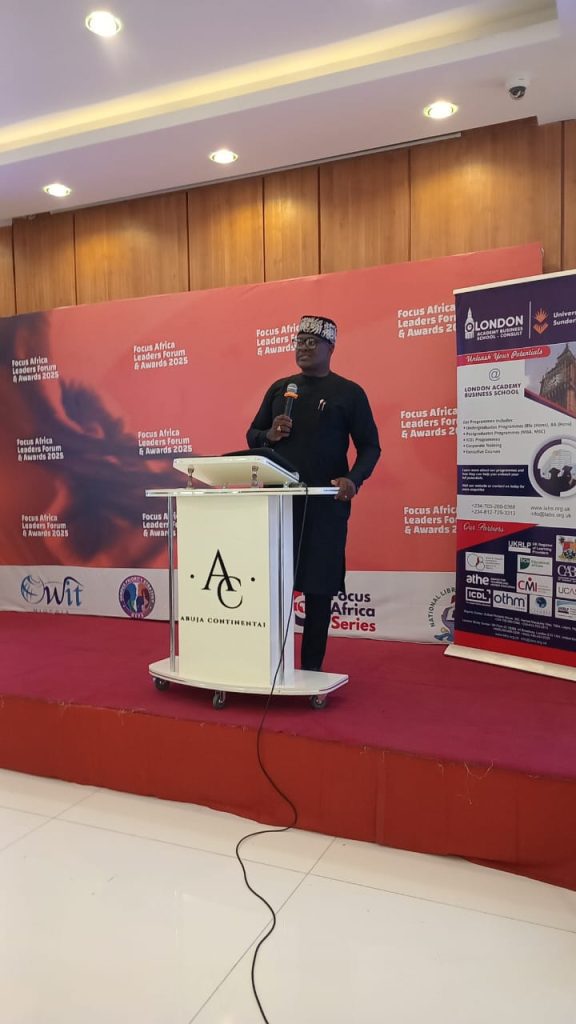
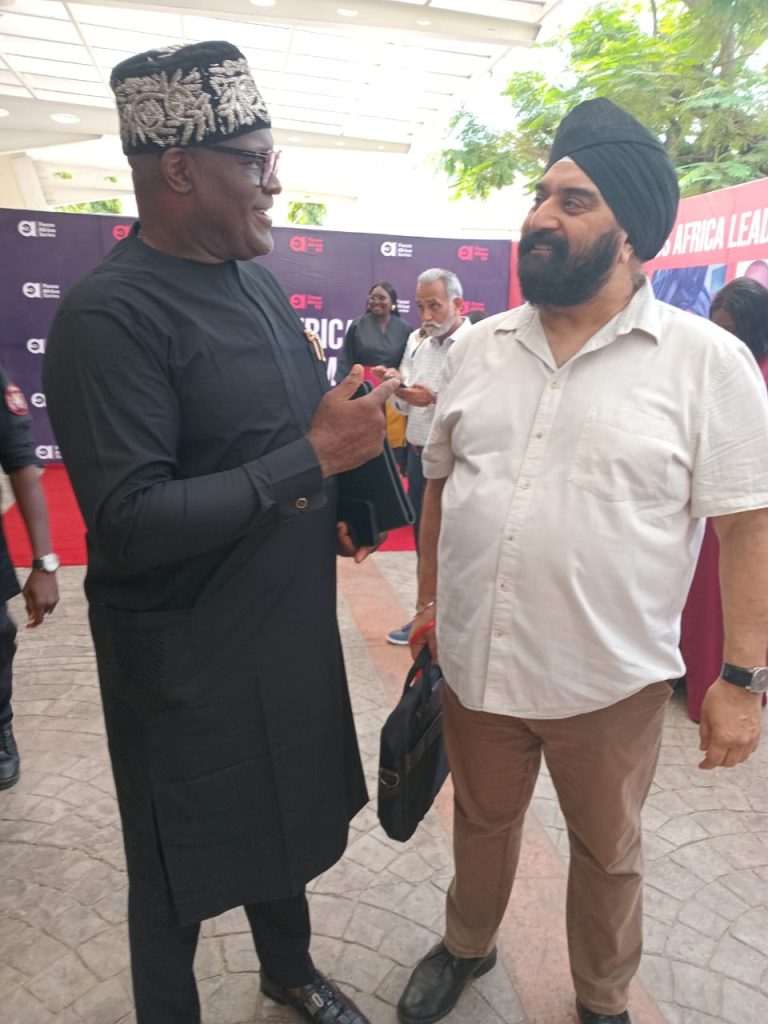
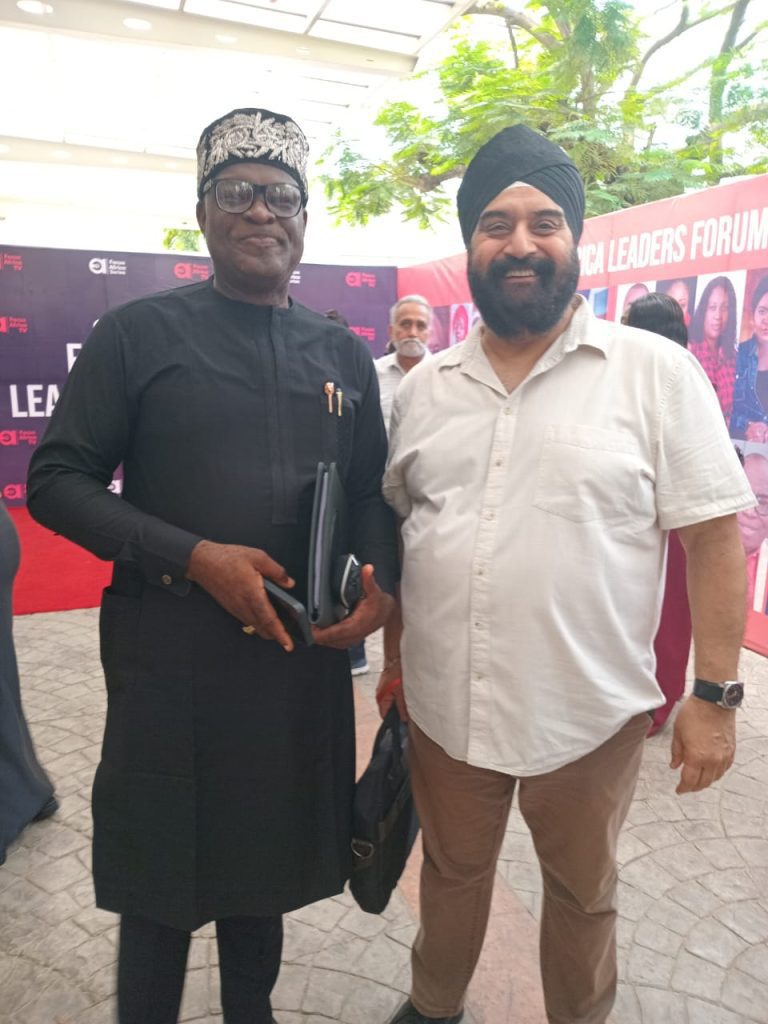
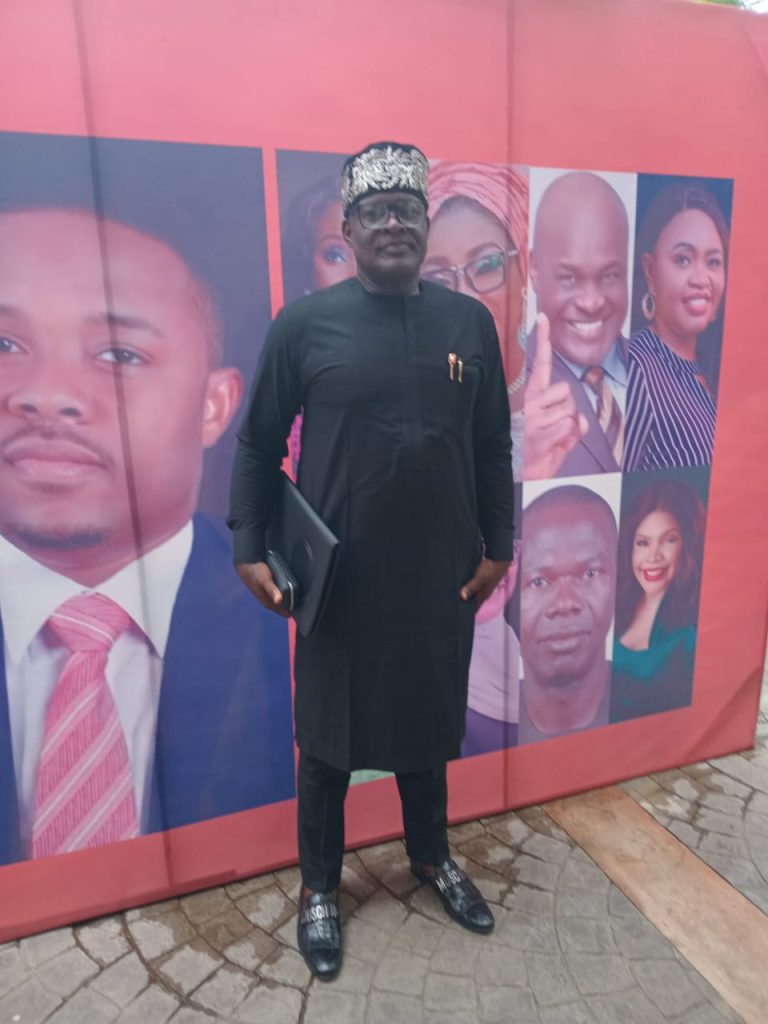
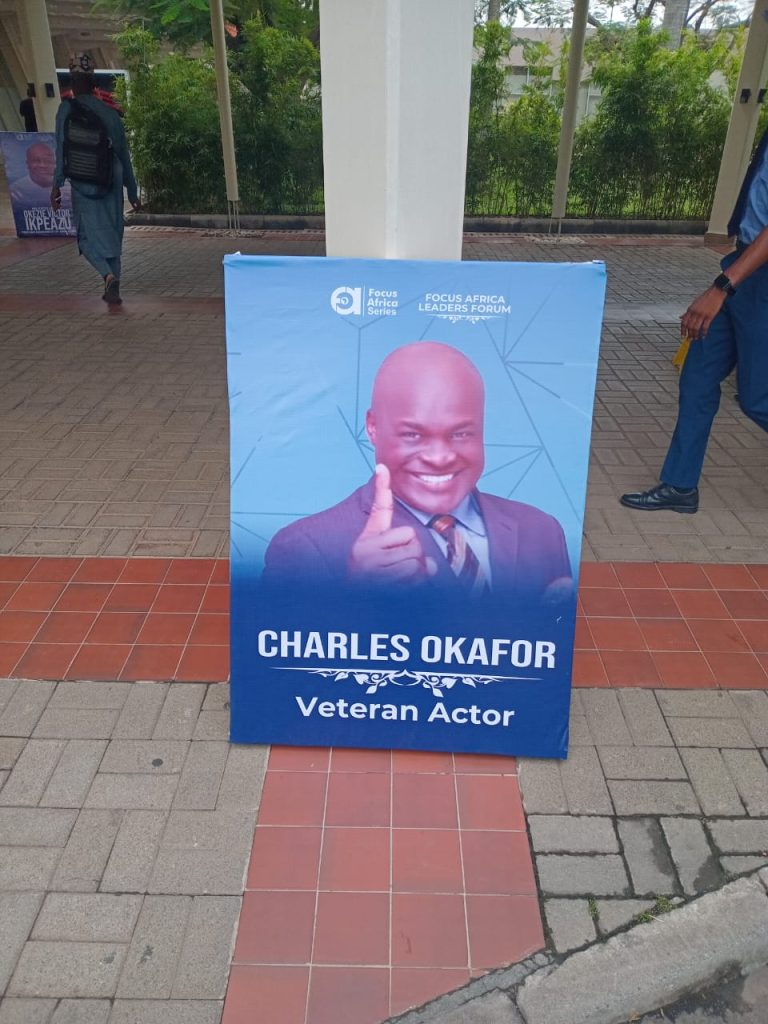
Picture Reel.
Charles Okafor, LEAD SPEAKER at the FOCUS AFRICA CONFERENCE, Abuja, April 10, flanked by some distinguished attendees, including Sa”in Lere Mohammed, Co-Chairman of the Nigeria-Egypt Business Council, Ambassador Zainab Mohammed, Sir Jude Ojiyi, Former Director of Finance of the Federal High Court, Ambassador Elizabeth Ohiri, former Nigeria’s Ambassador for Peace to Pakistan and a top official of NACCIMA.




